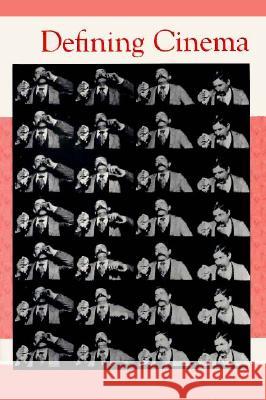Defining Cinema » książka
Defining Cinema
ISBN-13: 9780813523026 / Angielski / Miękka / 1997 / 216 str.
Defining Cinema is the first book to bring together leading theorists and scholars to discuss the importance of film theory to cinema studies. Peter Lehman introduces the volume by explaining what constitutes film theory and outlining the major positions within the field by placing these five theorists and their work within a historical perspective. Andre Bazin and Siegfried Kracauer represent realist film theories, and Sergei Eisenstein represents a formalist position. Noel Burch and Christian Metz are contemporary theorists who have moved beyond the classical realist-formalist opposition. Burch's theory encompasses films and styles praised by both Bazin and Eisenstein, and Metz helped bring semiotics and psychoanalytic theory to prominence in the field. The commentaries by contemporary film scholars range from attacking to defending to explicating the various theorists. Dudley Andrew gives an impassioned defense of Bazin, while Noel Carroll offers a sharp critique of Kracauer. Vance Kepley, Jr., explicates Eisenstein's theories in relationship to his films and shows the legacy of his works in film history. Edward Branigan analyzes Burch's early writings in a manner that reveals its daring, rigor, and importance. Robert T. Eberwein traces the shift in Metz's work from the early phase based in linguistics and semiotics to the later work based in psychoanalytic theory. Taken together, the essays show that film theory is a lively area of inquiry and debate rather than a simple history of right and wrong positions.











